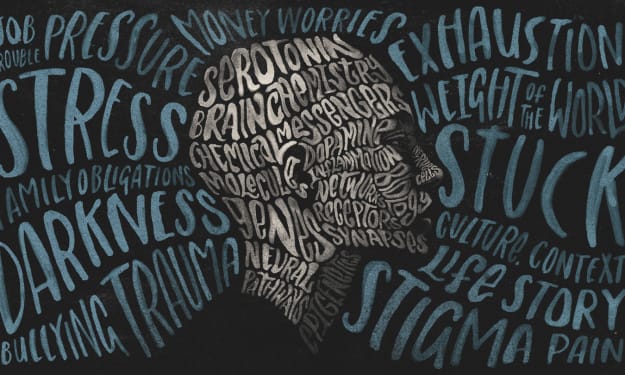Split Personality Disorder
Unexpected Power of Mind

Split personality disorder, also known as dissociative identity disorder (DID), is a mental health condition characterized by the presence of two or more distinct identities or personalities that can control an individual's behavior, thoughts, and emotions. These identities can be very different from each other and may have unique names, voices, and behaviors. DID is a complex and controversial condition that has been the subject of much debate in the mental health community.
The cause of DID is not fully understood, but it is believed to be the result of severe trauma or abuse experienced during childhood. When a child experiences repeated trauma, their brain may develop a coping mechanism where they dissociate, or detach themselves from the traumatic experience. Over time, this dissociation can lead to the development of multiple identities.
Symptoms of DID can vary widely and may include memory lapses, feeling detached from oneself or one's surroundings, feeling as though one is watching oneself from outside the body, and experiencing frequent changes in mood, behavior, and personality. Individuals with DID may also experience depression, anxiety, and other mental health issues.
Diagnosing DID can be difficult, as the symptoms can be mistaken for other mental health conditions such as borderline personality disorder or bipolar disorder. A diagnosis of DID requires a comprehensive psychological evaluation by a trained mental health professional.
Treatment for DID typically involves a combination of therapy and medication. Psychotherapy can help individuals with DID integrate their different identities and develop coping mechanisms to manage their symptoms. Medications such as antidepressants and antipsychotics may also be prescribed to help manage symptoms of depression and anxiety.
Despite advances in the understanding and treatment of DID, there is still much debate and controversy surrounding the condition. Some mental health professionals question the validity of the diagnosis, while others argue that it is a real and debilitating condition that requires specialized treatment.
One man who has been diagnosed with DID, and who has bravely shared his story with the world, is John. John first began experiencing symptoms of the disorder in his late teens, after he experienced a traumatic event that left him feeling detached from his own emotions and memories. Over time, he began to notice that he would sometimes "lose time" or feel like he was watching his own life from the outside.
It wasn't until several years later that John was diagnosed with DID by a mental health professional. He was initially skeptical of the diagnosis, but as he learned more about the disorder and began to work with a therapist who specialized in treating DID, he started to recognize the different alters that existed within him.
John's alters are all very different from one another. Some are more outgoing and confident, while others are shy and withdrawn. Some are more prone to anger or aggression, while others are more nurturing and caring. Despite their differences, John has learned to work with his alters and find ways to coexist peacefully with them.
Living with DID is not without its challenges, however. John sometimes struggles with memory loss, especially during times of stress or trauma. He also sometimes experiences "switching," or sudden shifts in personality, which can be disorienting and confusing for him and those around him.
Despite these challenges, John is committed to managing his disorder and living a fulfilling life. He has found support through online communities and local support groups, and has even been able to educate his family and friends about his condition in order to help them better understand and support him.
While living with DID can be difficult, John's story is a testament to the resilience and strength of the human spirit. With the right treatment and support, it's possible for those with the disorder to find a sense of peace and stability in their lives.
In conclusion, split personality disorder or dissociative identity disorder is a complex mental health condition that can significantly impact an individual's life. While there is still much debate and controversy surrounding the condition, it is important for individuals experiencing symptoms of DID to seek professional help from a trained mental health professional. With the right treatment, individuals with DID can learn to manage their symptoms and improve their quality of life.






Comments
There are no comments for this story
Be the first to respond and start the conversation.